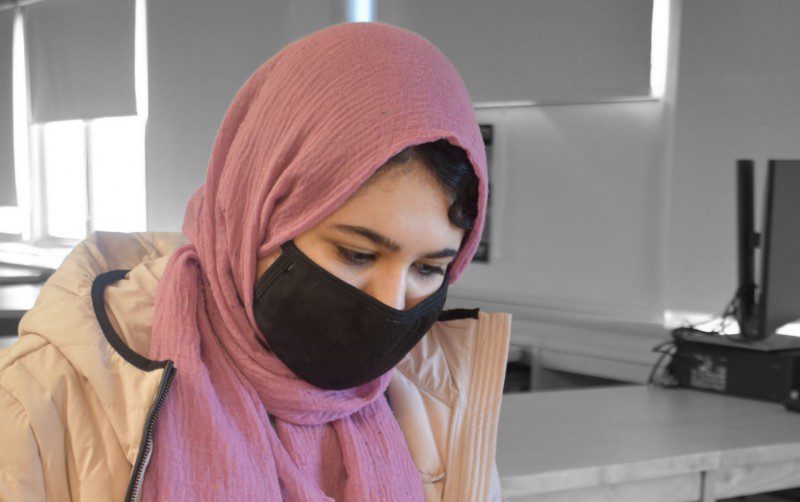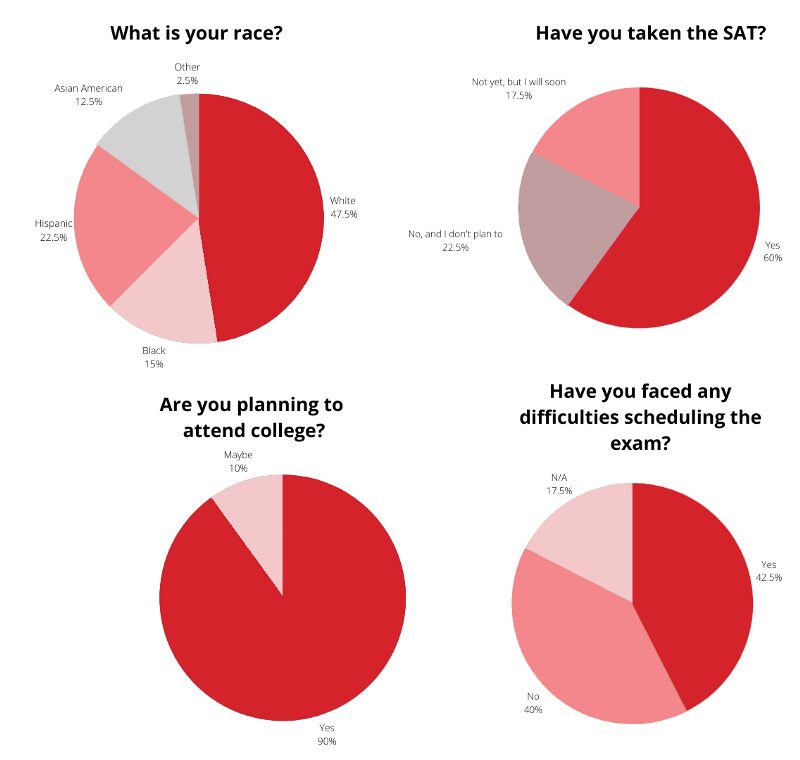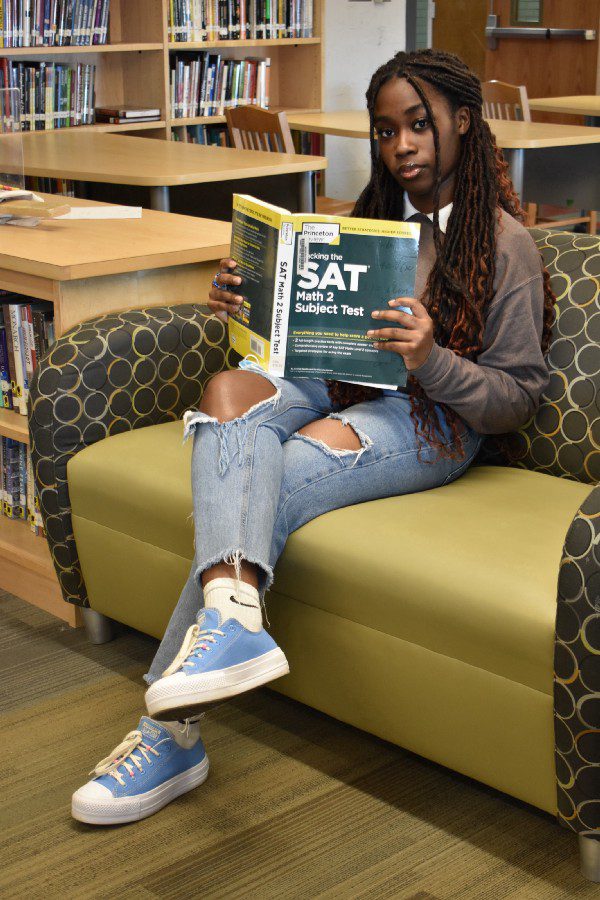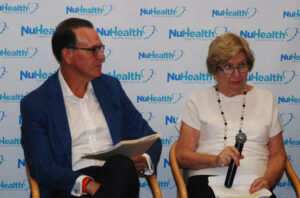By Damali Ramirez
Editor’s note: This story first appeared in PULSE, which is published by the Lawrence Herbert School of Communication’s Magazine Production class for Hofstra University students and residents of surrounding communities.
Hearts are beating, legs shaking, sweat dripping, it seems impossible to concentrate. In 180 minutes, students have to demonstrate their college readiness by completing the math, evidence-based reading and writing sections of the Scholastic Aptitude Test. Before Covid-19, students’ eyes would wander around the room trying to outscore their peers in the hope of getting into their dream colleges. Now, students sit in socially distant classrooms, wondering if someone around them has Covid-19.
Three-fourths of U.S. colleges made SAT scores optional for admissions because of the limited testing opportunities, and about 1,700 schools did not require SAT or ACT scores for this year’s applicants. Yet, many Long Island high school juniors and seniors are opting to take the exam, despite the obstacles they face, like testing sites closing, filling up or being too far. The College Board website advises students to be vigilant the night before and morning of test dates about test centers closing or making short-notice changes.
“I think it’s defnitely become normalized, and I feel that [students] just want to show that they do know some of the material,” said Nina Rashid, a Syosset High School junior.
Last summer, Nina couldn’t take the SAT because testing sites were closed or too far. Although there is still uncertainty about testing sites closing, she registered for the May and June test dates at her school. She, like other students, said she believes universities prefer high SAT scores over high grade point averages.

Elmont High School junior Noor Shahin said she believes taking the SAT will increase her chances of getting into an Ivy League school like Columbia. // Photo courtesy Alexandra Martinez
Elmont High School junior Noor Shahin said she decided to take the exam in the hope of getting into an Ivy League school like Columbia.
From a young age, she said, she was told she had to take a college entrance exam and thought it was a test she couldn’t skip, even though Columbia announced it would not require next year’s applicants to submit their scores. To her, she still believes colleges consider SAT scores important.
Last year, Shahin emigrated from Egypt to the United States and felt clueless about the SAT process. She went on the College Board’s website to download practice exams, used Khan Academy and signed up for a SAT prep course that her school offered juniors this year.
Despite all her preparations and hybrid-learning, she does not feel confident and is struggling to pay attention in her online classes, saying she has lost her motivation to study.
“I can’t even concentrate in class. The days I’m online, I don’t care about class. I’ll open it and then watch Netflix, and every student does that,” she said.
In December, she tried to register for the exam, but the list was too long, and the closest test site was 30 minutes away in up-state New York.

“I can’t drive 30 minutes away to a school I don’t know to take an exam,” Shahin said. She tried to register again in March, but her test date was canceled because of the virus. Her guidance counselor then informed her that the school was offering a test date in April. Despite the obstacles, she knows she can retake the test and only has to worry about testing sites closing. “I’m still a junior,” Shahin said, “and I feel sorry for the seniors whose exam got canceled, couldn’t take it, and now they have to do it this year while preparing their college applications.”
Like Shahin, Pelumi Ukinamemen, an Elmont junior, was also taking the exam on April 13. She heavily relied on Khan Academy to study for the SAT and focus on areas she needs more practice in. The schools that she is applying to in Texas require SAT scores, but she is also taking the test as a precaution. Even if the scores are made optional, Ukinamemen plans to submit her scores to demonstrate all the hard work that she has done.
“We have the SAT, some of us have [Advanced Placement] exams and the Regents coming up. All of that together is in two months, and we’re all racing to study all of this stuff. It’s really stressful,” she said.

“Last year, we had to take the [Preliminary Scholastic Aptitude Test] in October, and I remember that the day after we went in, they closed the school because there was a positive case,” she said. “It felt so weird because I stayed home for so long, and the day I go back is the day there’s a positive case in the same building at the same time as me.”
Opoku-Mensah said she tries to study an hour every day and is in a study group that meets from 7 to 9 p.m. She also juggles AP and Regents exams and plans to apply to Ivy League schools.
“I don’t care about my score, since a lot of schools are saying that it doesn’t matter, but it’s still also really important to me, so I’m kind of conflicted about it,” she said.








